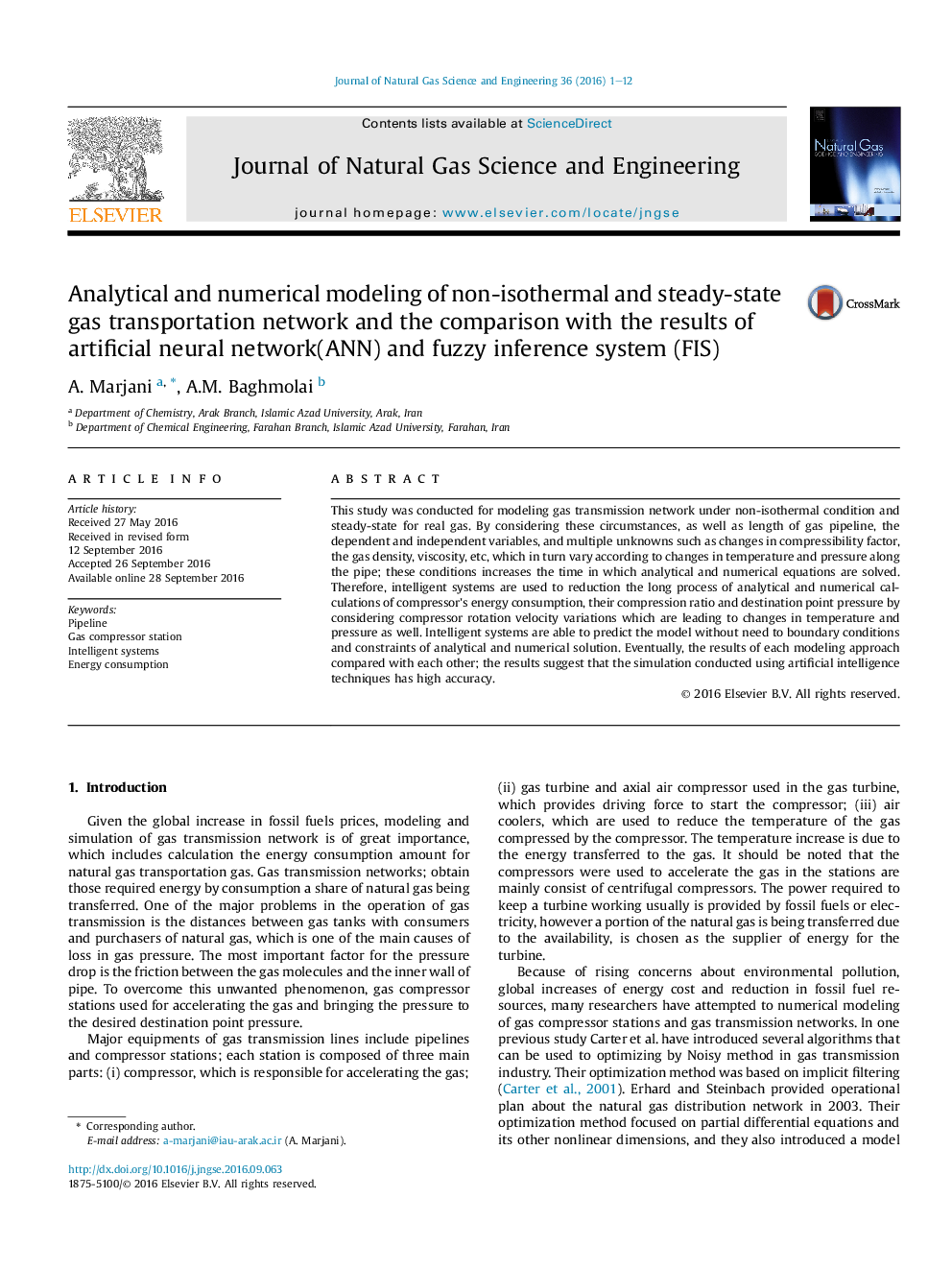| Article ID | Journal | Published Year | Pages | File Type |
|---|---|---|---|---|
| 5484799 | Journal of Natural Gas Science and Engineering | 2016 | 12 Pages |
Abstract
This study was conducted for modeling gas transmission network under non-isothermal condition and steady-state for real gas. By considering these circumstances, as well as length of gas pipeline, the dependent and independent variables, and multiple unknowns such as changes in compressibility factor, the gas density, viscosity, etc, which in turn vary according to changes in temperature and pressure along the pipe; these conditions increases the time in which analytical and numerical equations are solved. Therefore, intelligent systems are used to reduction the long process of analytical and numerical calculations of compressor's energy consumption, their compression ratio and destination point pressure by considering compressor rotation velocity variations which are leading to changes in temperature and pressure as well. Intelligent systems are able to predict the model without need to boundary conditions and constraints of analytical and numerical solution. Eventually, the results of each modeling approach compared with each other; the results suggest that the simulation conducted using artificial intelligence techniques has high accuracy.
Related Topics
Physical Sciences and Engineering
Earth and Planetary Sciences
Earth and Planetary Sciences (General)
Authors
A. Marjani, A.M. Baghmolai,
